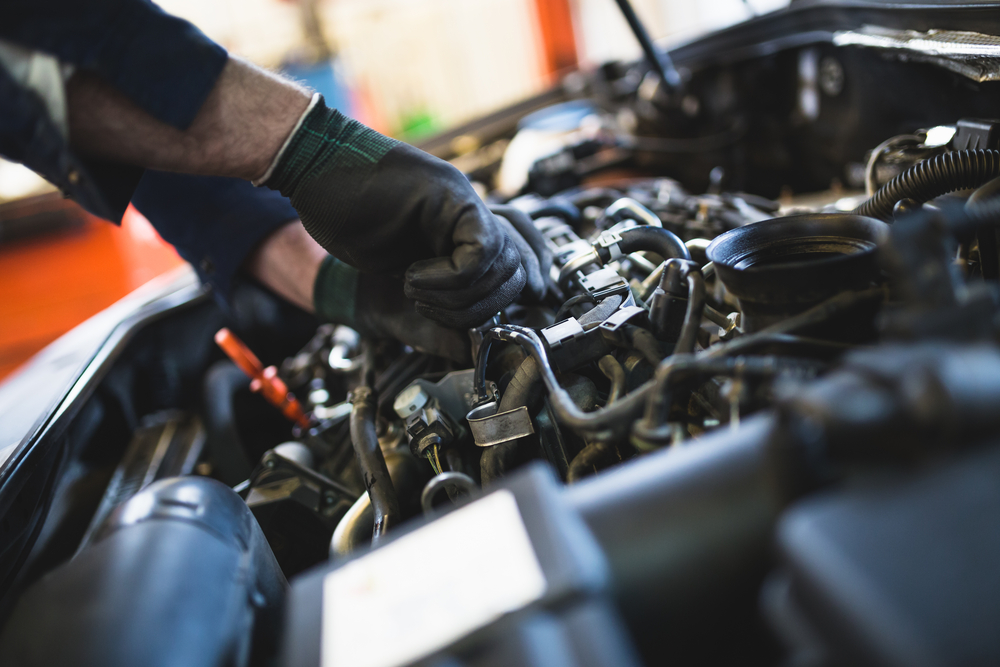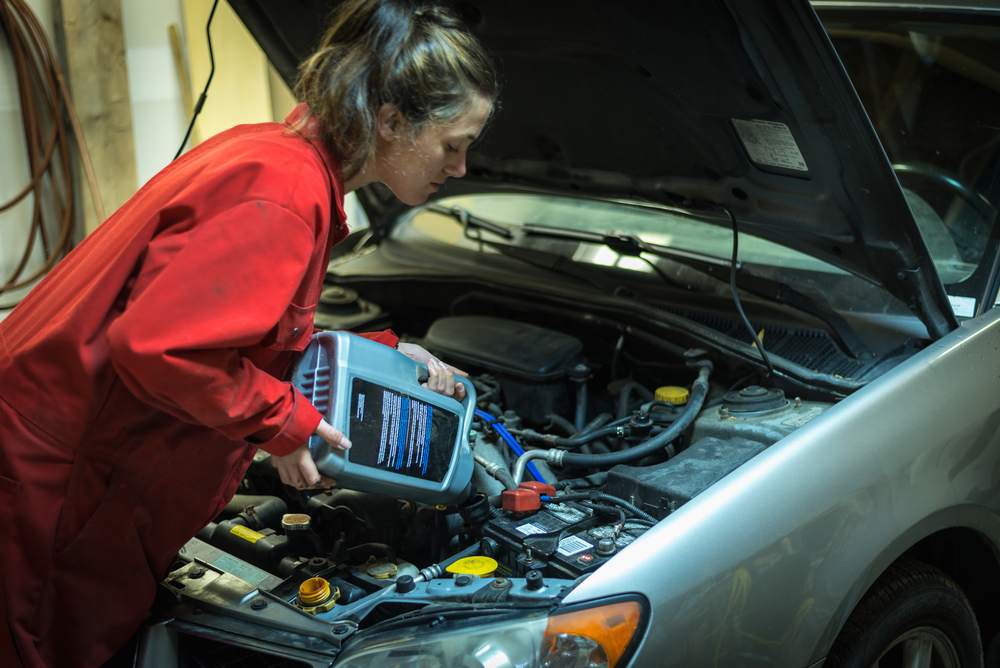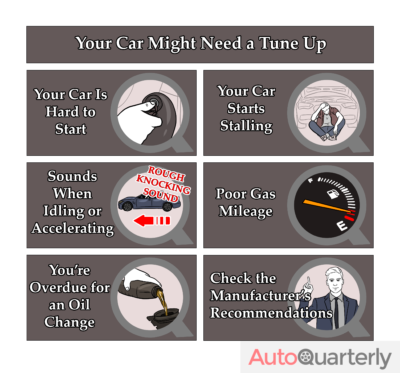A sometimes overlooked component of car maintenance, a tune up can be just as important as changing your oil or rotating your tires. In fact, a tune up can often improve the functioning of your car and help you catch any issues with your vehicle before they become major.
Whether you’ve heard of tune ups before or are new to the concept, you may be wondering what exactly the process of a tune up is, and how much it costs. In this article, we will answer all these questions and more, in order to help you fully understand this important part of car maintenance.
- What Is a Tune Up?
- How Will a Tune up Help?
- Average Costs of a Tune Up
- The Difference Between a Car Service and a Tune Up
- How Often Should You Get a Tune Up?
- Signs That Your Car Might Need a Tune Up
- Can You Do a Tune up Yourself?
- What Happens if You Don’t Get a Tune Up?
- Pro Tips to Make Your Car Run Smoother
- Keep Your Car Running Smooth
What Is a Tune Up?
In short, a tune up is a routine inspection and maintenance check on the parts of your car that are most likely to be damaged or worn out with time. Which parts these are will depend heavily on the make, model, and age of your car; you may be able to find answers to specifically which parts you should get checked out in your vehicle owner’s manual.
During a tune up, the technician in charge of your vehicle will typically use an electronic diagnostic system to check on the major functions of your car. They may also use a shop manual or, as we mentioned above—a copy of the owner’s manual, to determine which parts of your car are due for maintenance.
An average tune up will usually include the installation of new spark plugs, a check and replacement of air filters and engine fluids, a battery check, a check of the timing belt or chain, and, sometimes, a tire service. Your tune up may also include a fuel filter, carburetor check, and distributor maintenance, depending on the age of your car.
How Will a Tune up Help?
Making sure to get a regular tune up can be beneficial to your car’s longevity and your wallet. With the help of tune up maintenance, you will be able to take better care of your car and catch most major issues before they arise. This in turn can help your car run smoother and potentially give you better gas mileage, a definite bonus for your wallet.
Average Costs of a Tune Up
Now that you know what a tune up is, it’s time to discuss costs. The price of a tune up varies greatly due to the make and model of your car, and how much per hour the technician charges in labor costs.
A basic tune up consisting of a simple inspection and spark plug replacements will be somewhere between 50 and 150 dollars.
A more in-depth tune up that includes the use of electronic diagnostic equipment, oil changes, filter replacement, and new spark plugs, in addition to other routine maintenance services, will typically run between 200 and 800 dollars.
The reason for the wide range is because it depends heavily on what parts are needed and what your mechanic charges as an hourly labor wage (this cost is usually 40 to 150 dollars an hour, with the more expensive labor costs occurring at dealerships).
If you have an older or more vintage vehicle, especially one with more miles on it (above the 90,000-mile range), the tune up cost will be more expensive. The typical price for cars like this is somewhere between 500 to 1,200 dollars, depending on the parts needing replacement and car type.
The cost for performing a tune up at home is usually between 50 and 100 dollars for materials, depending on what parts are needed and whether you need to buy tools—this is something we’ll explore in more depth later in this article.

The Difference Between a Car Service and a Tune Up
You may have heard these terms used interchangeably when referring to maintenance on your car, but there are a few differences between the two that should be understood.
A tune up, as we discussed above, is a basic inspection of the most common vehicle areas that need maintenance and repairs. It involves basic replacements of small items and typically a top up of fluids.
On the other hand, a car service is a more major tune up. If you are getting your car serviced it means that you will be receiving all of the basic tune up activities, plus more labor-intensive activities such as tire replacements, brake pad replacement, and extra time spent checking out all of the components of your vehicle.
Different mechanics and auto shops may use these terms slightly differently, so if you want to be sure what you are getting, when talking to a professional be sure to ask for a tune up and confirm what is included in it.
How Often Should You Get a Tune Up?
Tune ups are not needed very frequently, but you should try to get yourself onto a regular maintenance schedule with them. For older cars, the recommended time to tune up is usually between every 10,000 and 20,000 miles of use; for newer cars, you should be tuning up approximately every 30,000 to 100,000 miles.
The best way to keep track of this is to tune up your car every time you change the oil in it. This way, you can always stay on top of maintenance that may be needed and do not end up having to do a major (and costly) tune up all at once, sometime later on. To find more information about tune ups and regular maintenance needed for your car, you can check out your owner’s manual.
Signs That Your Car Might Need a Tune Up
If you don’t remember the last time you tuned up your car and are wondering if now is the time to do so, check out this list of signs that it’s time to pay your vehicle some attention.
Your Car Is Hard to Start
When your car becomes hard to start, the engine is struggling before turning over – a sign it could be time for a tune up. Any number of issues could be causing starting problems, including a weak battery or an ignition issue that a tune up could diagnose and fix.
Your Car Starts Stalling
A stalling car often points to faulty spark plugs or poor connectors. These issues prevent the car from running because the fuel is not igniting as it would in a properly functioning car. Pay attention to where and when your car stalls (for instance, going up a hill or only when the AC is running). This will help you accurately diagnose the issue when you consult a mechanic.
A tune up may be just the thing you need as it will include replacing your spark plugs and identifying any other battery or ignition issues.
Sounds When Idling or Accelerating
A rough or knocking sound when your car is sitting in idle or accelerating may point to faulty spark plugs. If you are experiencing this, try replacing your spark plugs as part of a tune up and see if the issue is solved.
Poor Gas Mileage
Poor gas mileage often indicates that your vehicle is not running at its most efficient. This can be due to fuel injection issues or faulty spark plugs. The main goal of a tune up is to get your vehicle running at its most efficient; it is likely a tune up would fix your mileage issues.
You’re Overdue for an Oil Change
If you don’t know when exactly your last tune up was, or if you’ve never gotten a tune up before, try to remember the last time you had your oil changed. You should generally try to perform a few tune up activities at the same time as getting your oil changed, in order to efficiently perform maintenance. If it has been a while since your oil change, you should go ahead and get one as part of a tune up.
Check the Manufacturer’s Recommendations
One of the easiest ways to see if it is time for a tune up is if your owner’s manual advises it. Most manufacturers will make their recommendations for when exactly you should be getting tune ups, and it usually a good idea to follow this advice, even if you feel like there is nothing wrong with your car. A basic check won’t hurt, and it could potentially prevent more damaging issues from occurring.
Can You Do a Tune up Yourself?
Outside of using electronic equipment to diagnose your car systems, you can in fact perform many of the activities required for a tune up by yourself at home. The cost for performing a tune up at home is usually between 50 and 100 dollars for materials, depending on what parts are needed and whether you need to buy tools. Below, we have listed some of the easiest tune up activities you can perform at home on your car.
Perform a Basic Inspection
Performing a basic inspection is the first part of a quality tune up. You can reference our list for suggested repairs to check on during this inspection.
Check Oil
Checking your oil is one of the simplest ways to keep your car in good shape. The oil level should be right at the mark on the dipstick and should be smooth and uniform in appearance. If needed, add more oil in to bring the level up.
You can follow this guide if you have never changed your oil before and need help understanding how to do it.
Inspect Tires
Tire inspection is important to make sure the tread is wearing evenly on your tires and that they are all inflated to a safe level. Look on the side of your tires for the maximum recommended PSI and ensure that your tires meet it.
Check Fluids
During a basic inspection, check the windshield, transmission, brake, and radiator fluids. If the levels are low, consult your owner’s manual to figure out the necessary products to refill them.
Inspect the Battery
Your car battery should not have any sign of corrosion or build ups of dirt on it, especially around the contact points, as these are what allow your car to start up smoothly. If it does look dirty, it is fairly simple to clean the battery.
Test Brakes
Take your car out for a drive in a safe, private area. Pump the brakes and check to see their responsiveness and if there are any abnormal sounds or feelings. If there are, you may need to look into replacing your brake pads.
Check the Lights
During your inspection, you should check to see if your headlights and rear lights are functioning properly. You may need a second person to help you with this as you press the brake to be sure the backup lights are working. If any of the lights are out, you can check your owner’s manual for the correct replacement bulb.
Routine Maintenance Repairs
These routine repairs may take a little bit more time and knowledge to complete, but they are an important part of any great tune up.
Change the Oil
Your car should have its oil changed approximately every 30,000 miles of wear. During your tune up, it may be a good idea to change your oil. Follow this guide for help getting started with this.
Rotate the Tires
Rotating the tires is something that can be a little more difficult when performed from home. You will need to completely lift your car up for this process; if you notice during your inspection that the tires need rotation, it might be a good idea to take your vehicle to a professional.
Replace Windshield Wipers
Replacing the windshield wipers is a simple process that can greatly improve the visibility from your windshield. If your wipers are loose, cracked, or have gaps in them, it is time for a replacement.
Change Air Filters
Ideally, your air filters should be changed every time you get an oil change. Doing this regularly can help extend the life of your engine.
Inspect Belts
If you notice a loud squeaking noise when you start or turn on your car, you could be dealing with a belt that needs replacement. Inspect the serpentine belt during your tune up and replace it if necessary.
Replace Spark Plugs
The spark plugs are an important part of your vehicle’s fuel combustion mechanism and should be inspected and replaced, as necessary. Look at this article to determine if your spark plugs are faulty.
When to See a Professional
If you have performed all of the usual tune up activities and are still noticing issues with your car, such as the engine not turning over or electrical functions not working properly, it may be time to see a professional. A mechanic can help diagnose any issues with your car that are hard for your eye to discern and give you helpful advice on how to properly fix your car problems.
What Happens if You Don’t Get a Tune Up?
Going without a tune up for a prolonged period of time can have its drawbacks. Without a tune up, you will not be able to catch vehicle issues as they arise, and may only discover problems when they are much more serious. Additionally, your car may not run as smoothly and be less economical, which can cost you more money than getting a regular tune up.

Pro Tips to Make Your Car Run Smoother
If you want your car to run smoother, the help of these pro tips, in addition to regular tune ups, can help you get the most out of your vehicle.
Accelerate Slowly
While it can seem tempting to go from a slower speed to a fast one in a hurry, this can be very damaging to your transmission. It is much better for your car if you accelerate slowly and gently and avoid putting too much strain on the engine while driving.
Drive Less
One of the best ways to keep your car in good shape is to drive it less often. This may not be possible in some cases, but it is always a good idea to consolidate short trips into longer ones and plan out your driving routes for efficiency. The less turn overs your engine has, the longer its life will be.
Don’t Slam the Brakes
Slamming on the brakes is a sure way to put excessive wear on your brake pads and potentially cause damage to your transmission. Go easy on your brakes and try to decelerate slowly. You should also not rest your foot heavily on the brake pedal while driving, as this can cause a constant wear down on your brake pads.
Use the Correct Gas
You should always be using the type of gas specified in your vehicle owner’s manual. If you do not have this manual, you can usually check the inside of the fuel tank door to confirm what type of gas is needed. Using the wrong type can damage your engine, cause future car issues, and keep your car from running its smoothest.
Perform Routine Maintenance
Making sure to perform regular oil changes and routine maintenance, such as tune ups, can help your car run smoother and prolong its life. Always address issues when they arise and don’t wait to fix a problem with your car, as it can often turn into a bigger, and more expensive, problem.
Keep Your Car Running Smooth
A smooth-running car is the ultimate goal of vehicle owners. After all, a car that runs smoothly will be more gas efficient, less likely to breakdown, and more of a joy to drive. Regular tune ups are a great way to achieve an efficiently running vehicle, and now that you know all about tune ups and what they cost, you can take care of your car with confidence.



